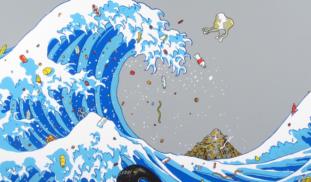66
-1
3
Please wait...
About This Project
Our oceans are full of microplastics with potentially massive impacts on our marine environments. This research focuses on an unsuspected effect: do microplastics influence climate change? Our laboratory results suggest that microplastics may modify the microbial dynamics of carbon and oxygen. We want to further explore it in mesocosms, where large volumes of enclosed seawater can be examined under controlled and simulated conditions, like a “future” plastic ocean.
More Lab Notes From This Project

Browse Other Projects on Experiment
Related Projects
Early-Stage Drug Discovery for Chagas' Disease
An estimated 6 – 7 million people in Latin America and 300,000 U.S. citizens are infected with the protozoan...
Can brown rot and white rot fungi work together to clean up spilled diesel?
Mycoremediation is a form of bioremediation that uses fungi to clean up contaminated sites. Brown rot and...
Can skin care formulations address dark skin?
Those with chronic skin conditions are 2-6 times more likely to experience anxiety, depression, and physical...







